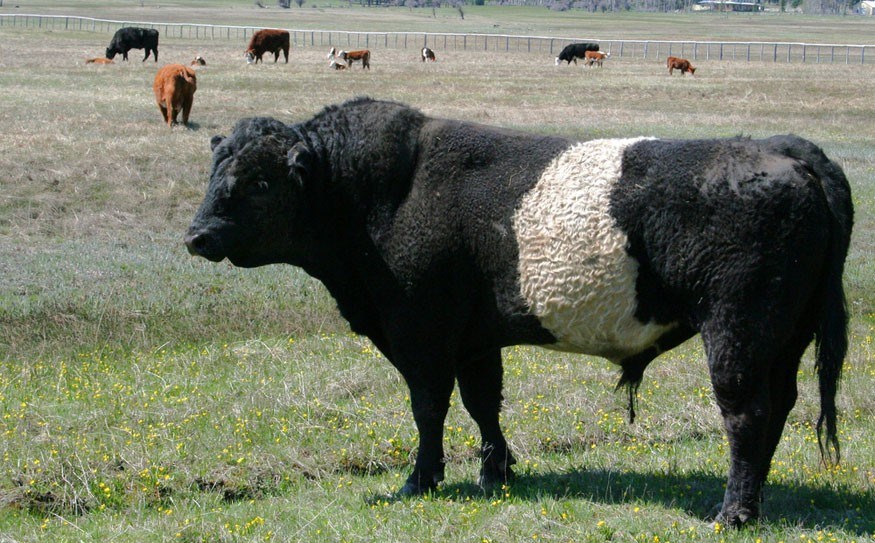It is all the talk from Brooks, Alberta, to Ottawa and beyond.
There's a burning question on the minds of people across Canada.
Just how safe is our food?
The simple answer is that a very small number of Canadians suffer illnesses from food so for many people very little thought is given to the safety of our food because issues related to our food supply rarely make it onto our radar. Radar screens went crazy last month as we started to hear about E.coli contamination at the XL Foods plant in Brooks.
News reports suggest that somewhere in the order of 16 Canadians became ill after eating tainted beef linked to the Alberta packer. The incident is reportedly the largest recall of beef in our country's history.
A significant amount of information is available now and that will hopefully prevent any further illness. Tainted meat purchased from grocery stores seems to have been well identified by the Canadian Food Inspection Agency (CFIA) so anyone with suspect meat from XL Foods has a few options; toss out the suspect meat, or return beef identified by the CFIA as recall meat to the store it came from. The dreaded E.coli O157: H7 can be simply eliminated by cooking beef all the way through if you want to cook the beef the beef you have. This particular strain of troublesome E.coli is killed off by heat but the key is to cook the meat completely. A steak infected by E.coli can prove to be a health hazard if pink meat is still showing at the time it is eaten.
According to the National Research Council of Canada (NRC), E.coli naturally occurs in the intestinal tracts of cow and humans.
"Although it causes no problems for cattle, the E.coli O157:H7 strain of the bacterium produces a toxin that is dangerous to humans. If ingested, E.coli causes cramping, diarrhea and in rare cases, kidney failure or even death," says the NRC on its web page.
Federal Agriculture Minister Gerry Ritz keeps telling us our health is his top priority.
"Canadian consumers and their families have always been and will continue to be the Government of Canada's first priority when it comes to food safety," says Ritz in two separate news releases regarding the E.coli scare.
Despite his reassurances after the fact, we know that the 46 CFIA inspectors that monitor the Brooks plant let infected meat leave the plant.
The timing of this outbreak is interesting as the Safe Food for Canadians Act is currently being pushed through the House of Commons in Ottawa. The ruling Conservatives introduced the legislation to Parliament last spring.
While MPs were discussing and debating this piece of legislation, E.coli bacteria was finding places to party in the XL Foods facility in Brooks. The Alberta plant is a facility described as the second largest beef operation in Canada and processes more than one-third of the beef produced in Canada by some 2,000 plant employees.
News outlets reported earlier this month that refrigerators in the XL Foods facility weren't being properly cleaned; sanitizer was dripping onto meat; a key thermometer wasn't working properly; and employees were sorting trimmed beef then touching contaminated meat without following the proper washing procedures.
Fingers are being pointed at all the cogs in the system from the large supermarket chains to government inspectors and their bosses along with the huge meat producers like XL Foods.
Some consumers, like Chris Quinlan, are taking advantage of options beyond the big chain stores by purchasing meat directly from a farmer. Grocery chains that received recalled meat issued statements recently that were similar to the one released by the federal agriculture minister. The stores insist that consumer health is a priority and they are doing everything in their power to sell quality food.
G.D. Maxwell wrote last week that most people don't trust the corporate messaging and want to hear from their friends and neighbours who work in their favourite stores that the food they're putting into their shopping bags is fit for consumption.
Quinlan's decision to get a group of friends together and buy the meat from half a cow directly from a Pemberton farmer is one option for those who want to know exactly where their meat comes from.
Food contaminants like E.coli, ebola and listeria will always be a concern because they occur in nature and simply can't be completely eliminated so consumers are well advised to be mindful of our food source options and use trustworthy food suppliers. One way to do that is to get into the game and get educated by producing some of your own food. Plant some herbs in your kitchen (it is easier than you think) and from there you might later find yourself inspired by the likes of Peter Ladner, who has been harvesting vegetables from his yard in Vancouver for decades.




